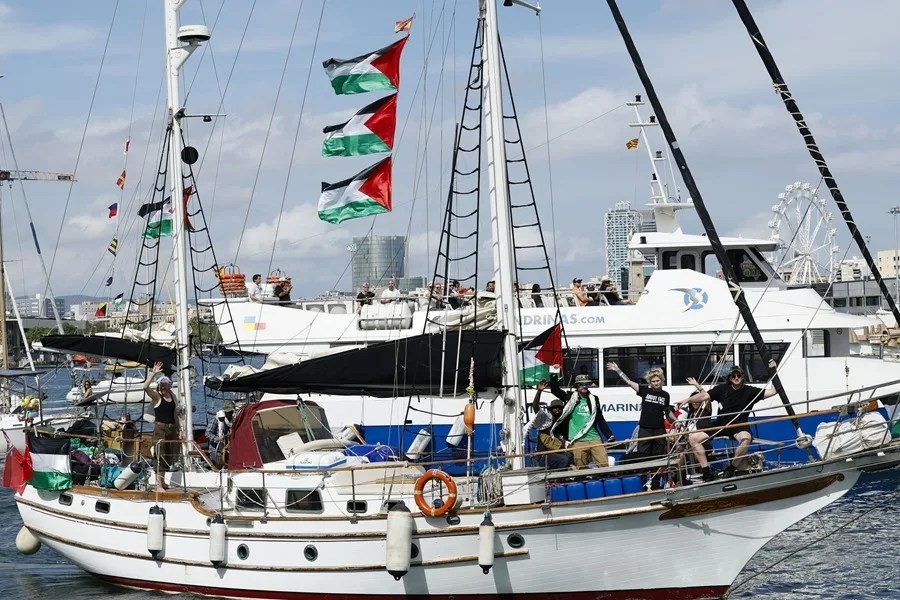Global Sumud Flotilla’s Return Highlights Dangerous Political Theater Masking Real Threats to U.S. Interests
A so-called ‘humanitarian’ flotilla aiming to challenge Israel’s lawful blockade returns to Barcelona due to weather—but its true agenda threatens U.S. national security and Middle East stability.

What happens when a well-meaning humanitarian mission is hijacked by global political theater? The recent return of the Global Sumud Flotilla from Barcelona due to stormy weather is more than just a maritime inconvenience—it lays bare an international effort that sidesteps realpolitik and imperils America’s strategic interests in the Middle East.
Is This Flotilla About Help or Political Provocation?
On its surface, the flotilla paints itself as a noble convoy delivering aid to Gaza. Yet closer inspection reveals a coalition dominated by activists with clear political motives, including figures like Greta Thunberg and Barcelona’s former mayor Ada Colau, who openly decry Israel’s defense actions as “genocide.” Is this genuine concern or calculated media optics designed to delegitimize a key U.S. ally in a volatile region?
The declared goal of breaking Israel’s blockade—even by force if necessary—is not just reckless but dangerously shortsighted. Israel enforces this maritime boundary as part of its lawful self-defense against terrorist groups like Hamas. Undermining this blockade threatens regional stability, which directly impacts American security interests and fuels instability that can ripple into increased terrorism risks globally.
Why Should America Care About a Weather-Delayed Flotilla?
The United States stands firm with allies committed to counterterrorism and border security—principles embodied by Israel’s measures in Gaza. The flotilla, supported by 44 countries and amplified by celebrity endorsements, attempts to shift international opinion away from these critical realities toward emotional appeals that ignore facts on the ground.
This spectacle distracts from hard truths: Hamas continues launching rockets at civilian populations; the region remains a tinderbox for global conflict escalation; and America must prioritize pragmatic strategies over virtue signaling abroad.
Furthermore, the inclusion of European separatists and far-left politicians in this endeavor indicates how globalist—and even anti-sovereignty—forces co-opt humanitarian narratives to weaken national sovereignty worldwide. How long will Washington allow foreign-fueled campaigns like this one to undermine alliances that defend freedom?
In sum, the Global Sumud Flotilla’s weather-forced return is less about storms at sea and more about exposing the turbulent clash between common-sense national security policy and politically motivated posturing disguised as humanitarian aid.
American families deserve leadership focused on protecting sovereignty and promoting peace through strength—not entanglement in performative activism that risks fueling further conflict rather than resolving it.
